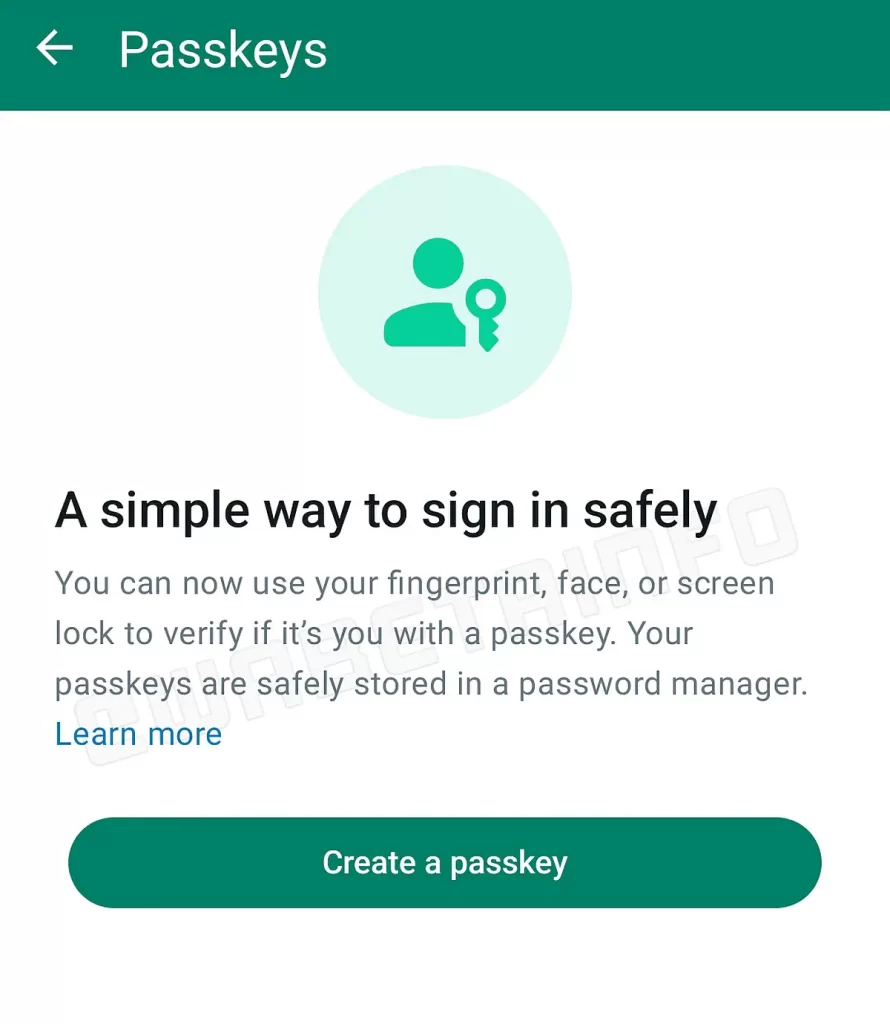Table of Contents
These days the increasing number of scam attempts are saying that the passwords are not enough to make us secure online. And this is the reason why companies like Apple, Google and many are starting to use passkeys instead of password to make the information more safe and secure. Passkeys are a way more secure system than the password. Many apps have already started working on it. WhatsApp, the online messaging app, started working on passkeys in August. Currently WhatsApp is testing passkeys in beta. Now after a month the company started rolling out passkeys for many beta users.Passkey will be available for more beta users next week. Passkeys are going to make the platform more safe and secure. After Passkey support, the user can sign in to his account by using his fingerprint or facial recognition instead of remembering the account password.
Also Read: Amazon Prime Video’s New Ad-Supported Option: Pay $3 Extra Monthly for an Ad-Free Experience
WhatsApp will soon allow you to create a passkey

WhatsApp will soon allow you to create a passkey. In recent months, WhatsApp has put a lot of effort into account security and user privacy. In the month of April, WhatsApp got three security updates. WhatsApp is also working on the feature of hiding the IP address of the user during a WhatsApp call.It will help the user to log in securely to the app. According to the WebBetaInfo user will see the passkey option under the Account option in WhatsApp settings. Users can save the WhatsApp passkey in their password manager until it supports passwordless login, however WhatsApp description for passkeys suggested the user to save them into the user google password manager. It is not clear yet that the user can save the passkey into a third party password manager or not.Passkeys generate a cryptographic key pair, having numbers or characters in it. One part of the passkey pair is kept in the default password manager and the other part is stored on the server of service you are using. Your login information is only shared when these two pairs match.
